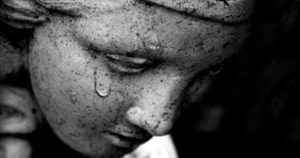Wrongful Death Grief
is Different
When a loved one dies, we hurt. At some point in our lives, we will all lose someone we love, and we will all grieve. But, all grief is not created equal.
Those confronted by the sudden, unexpected death of someone they love will face not only the dramatic sense of loss we all encounter – but they will also struggle with questions of: How did this happen? Why did this happen? Who is to blame? How could this have been prevented? When someone dies due to the wrongful or negligent act of another, the law commonly refers to the loss as a “wrongful death”. Through our years of handling “wrongful death” cases at DeCamillis & Mattingly, we have seen a lot of families facing unimaginable grief. We have learned that unless you have experienced the unexpected, tragic death of someone you love, you cannot understand the grief of someone who has.
Surviving victims of wrongful death even grieve differently from each other. Someone who loses a child will not grieve the same as someone who loses a parent. And, even among people who experience the same type of loss, the “stages of grief” do not happen at the same time (and not necessarily in “stages”). For victims of wrongful death, there is only one thing that is universally true: coping is a life-long struggle.
If you can’t fully relate to someone struggling with a wrongful death, what can you do to help?
As experienced wrongful death lawyers in Louisville, we are continuously working with survivors of deeply traumatic loss. If you want to help someone coping with wrongful death, here are three (3) things you can do.
- Learn about the stages of grieving, but realize – it’s not a schedule, and it’s not the same for everyone.
- Look for therapists with wrongful death experience. Look for support groups for people coping with sudden, unexpected death.
- Listen and pay attention.
Remember, that the “stages of grieving” can be different for everyone, especially after a wrongful death.
Tons of material has been published on the grieving process, mostly to help people know there is light at the end of the tunnel, even if they don’t see it. There are points of hope in any material on grieving, but don’t assume any of these processes 1) run on a schedule, 2) are always true, and/or 3) not following the schedule means something is wrong.
One of the most commonly cited grief processes is the Kubler-Ross model and its five stages: denial, anger, bargaining, depression, and acceptance. What many don’t realize is that Elizabeth Kubler-Ross developed this model to help her terminally ill patients accept their own mortality so they could experience peace before they passed. Of course, there are similarities between accepting one’s own death and accepting the death of another, but they are not the same. There are many variations of the grief stage model, such as these 7 Stages of Grief. Realize, none of these models are, however, schedules or blueprints to follow. Most (if not all) include the central concept that grieving is part of healing … which is critical to understand when it feels like the pain will never get better. At bottom, healing – gradually – is the point. When dealing with wrongful death, some people may never achieve certain degrees of acceptance. And, that is okay.
The most helpful people are those who have been there.
A man fell in a deep hole with no way out. People kept passing by, but none knew how to get him out, so they apologized and moved on. The man finally concluded he’d be stuck in the hole forever. Then a stranger came by, looked in, and jumped into the hole. The man exclaimed: “What are you doing!!?? Now we’re both stuck in here!” The stranger replied, “yes, but I’ve been here before.” It wouldn’t have made the man feel much better if the stranger merely said, “it will be okay.” The man’s best relief from hopeless despair was the company of someone who was living proof that there’s a way out.
There is no grief like the sudden, unexpected loss of someone you love. If you are experiencing this or know someone who is: these are some grief-support resources in Louisville.
Listen and Pay Attention.
Listening is the best thing you can do for someone on this difficult road. Listening means listening to both body language and words. Sometimes, people don’t want to talk. Talking about it is a constant reminder of what happened. Sometimes, people just need a minute to think and/or talk about something else. Sometimes, people do want to talk. When they do, listen. When they don’t, don’t ask.
At DeCamillis & Mattingly, PLLC, we help wrongful death victims answer the fundamental questions of – How did this happen? Why did this happen? Who is to blame? How could this have been prevented? We also think it is important to share our experiences and help.



